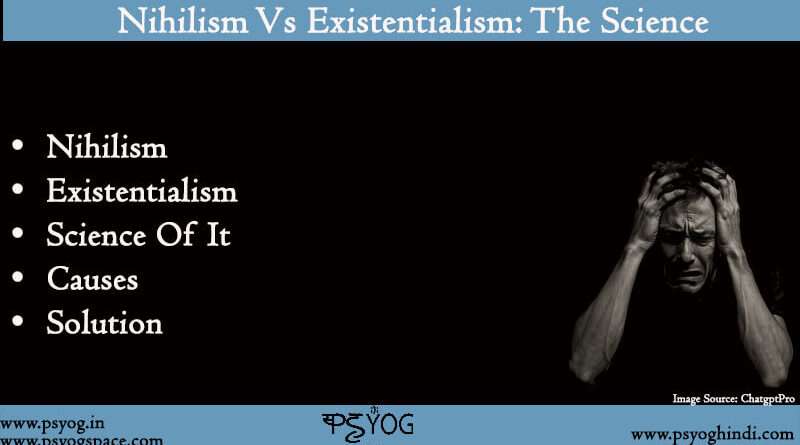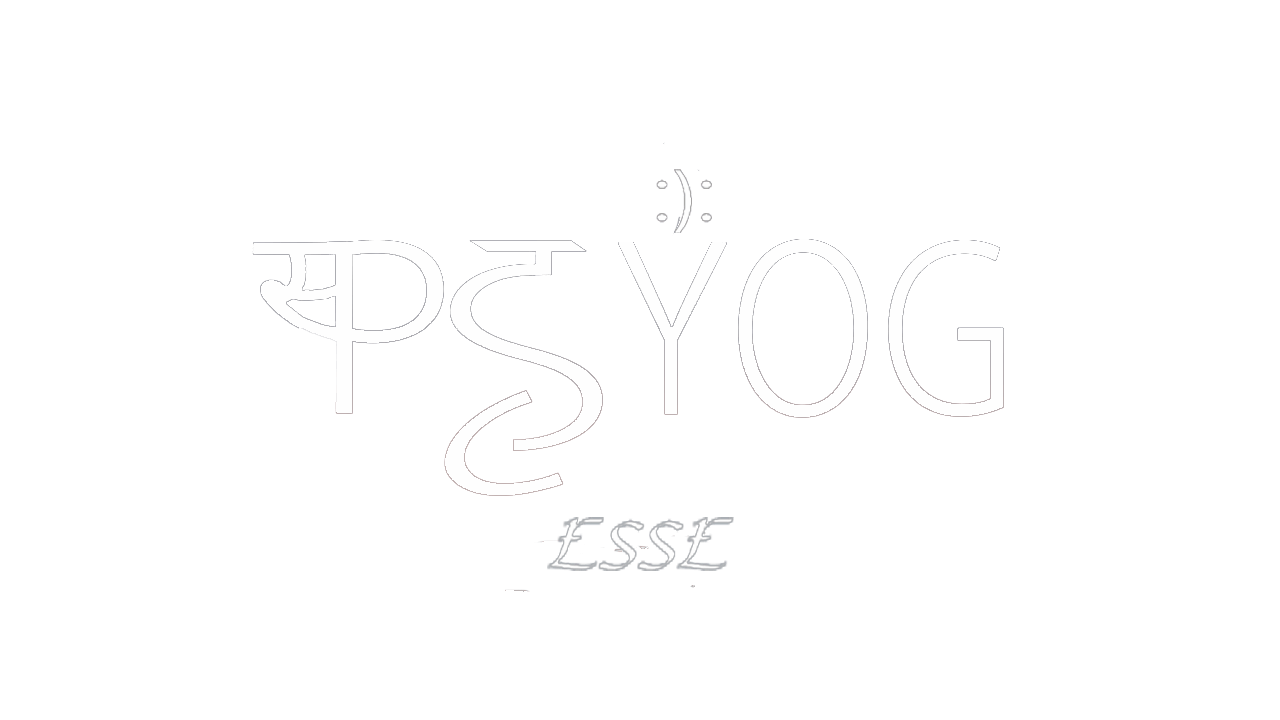Existentialism: Nihilism Vs Existentialism, Existentialism Is A Humanism, Existentialism Books
You wake up one day, look around at your life—maybe the job, the house, the car, the success—and you still feel a strange emptiness. It’s not that anything is particularly wrong, but deep down, there’s a sense that you’ve been running on a treadmill, going nowhere. That’s where existentialism comes in. It’s not just some heavy philosophy buried in old books. This feeling is real, and speaks to those quiet moments when you question why you’re doing what you’re doing. In fact, the tightness between nihilism vs existentialism begins to show when success feels meaningless and routine life loses all its excitement. That’s when we begin to see that existentialism is a humanism, a way to break out of the loop and choose meaning. If you’ve ever searched for something deeper, something that goes beyond just survival, then turning to the right existentialism books might just change everything.
Nihilism Vs Existentialism
Let’s be honest—most people, even those with money, jobs, and families, still feel like they’re missing something. They gather wealth, plan for retirement, upgrade gadgets, and follow the world’s checklist. Yet, internally, they often feel stuck. Why? Because life, as we live it physically, is trapped in time—and time moves in circles. It’s always day, then night. Summer, then winter. Up, then down. This endless loop gives the illusion of movement, but where is it actually going?
We’re told to move “forward” with time, but if time is just spinning us around, then forward becomes meaningless. This is where the real-life conflict of nihilism vs existentialism shows up. As we all know, nihilism says that, “Nothing matters, everything is a joke.” Undoubtedly, that can crush someone on a bad day. But existentialism answers, “Even if nothing is given meaning, you have the power to create it.” It’s not denying the emptiness; it’s facing it and building something anyway. (Read: Yes, mentalism can be mastered)
This quiet battle between nihilism vs existentialism plays out in many lives. Some people surrender to despair or numbness. On the other hand, some begin the tough but liberating journey of defining their own path. It’s not easy—but it’s real. And that’s why existentialism speaks so loudly to those who are tired of sleepwalking through life.
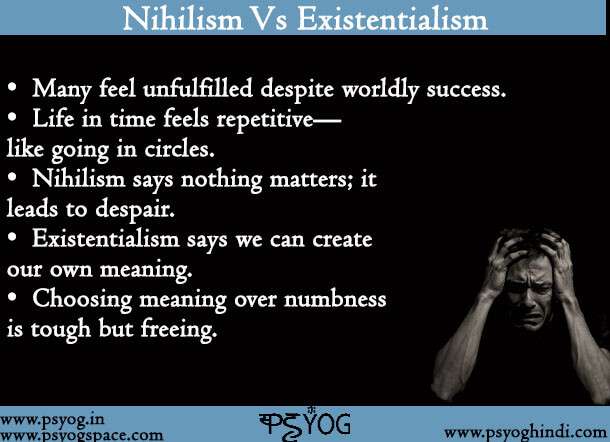
Existentialism Is A Humanism
Jean-Paul Sartre once made a bold claim: existentialism is a humanism. He meant that to be human is not to follow a script but to write one. We’re not born with fixed roles. We grow, we change, we choose. That’s both liberating and terrifying. It means you are responsible for your life—even when nothing seems certain.
But there’s more to it than just choosing your path. If time itself is just a loop, and everything in this physical world is temporary, then what does it truly mean to be human? To be human must mean going beyond these limitations. And that’s exactly why existentialism is a humanism—because it honors the part of you that can rise above conditioning, culture, and time.
You’re not here just to exist on repeat. You’re here to wake up, to see things as they are, and to respond consciously. You can stop reacting and start creating. Existentialism doesn’t give you answers; it gives you the space to find your own. And existentialism is a humanism because it believes in your power to do that, even when the world feels meaningless.
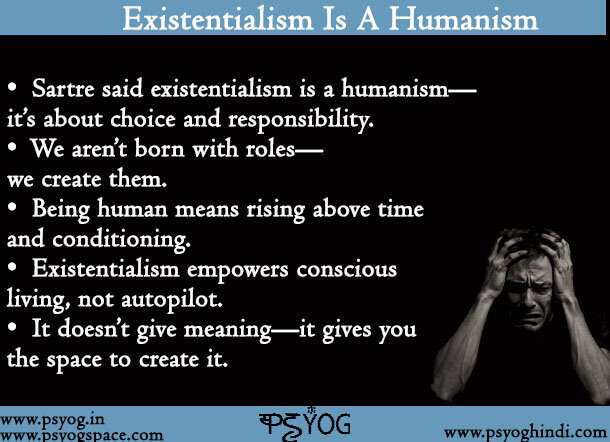
Existentialism Books
When life starts feeling like a loop, a good book can become more than just words—it can be a mirror, a guide, even a key. Some existentialism books do exactly that. They don’t offer quick fixes. Instead, they show you the cracks in what you thought was solid and invite you to step through.
One such book is Don’t Live But Die Well. It’s not about dying in the literal sense—it’s about going beyond the surface of life. It talks about how we can actually live beyond physical laws while still being here. We often get stuck thinking that the body, the job, the routine—that’s all there is. But this book says: drop that belief. Go deeper. Wake up to something timeless within you. (Read: Yogi tips for a calm mind)
Alongside this, there are other powerful existentialism books like Camus’ The Stranger, Frankl’s Man’s Search for Meaning, and Sartre’s Being and Nothingness. Each book doesn’t hand you purpose. Instead, they push you to look into the void—and find your own way. What makes Don’t Live But Die Well special is how it combines this inner awakening with practical clarity. It invites readers to shed the mechanical life and step into awareness. And that’s what existentialism books are meant to do: shake you, challenge you, and set your mind free.
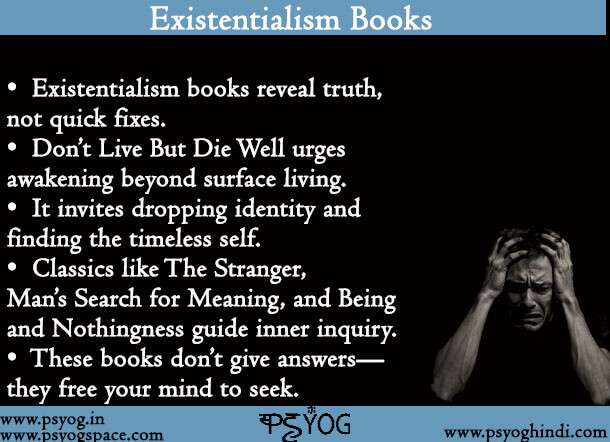
Conclusion
Now the big question is, where does all this confusion leave us? At a place where we start looking within instead of chasing things outside. Existentialism doesn’t promise comfort—it promises truth. The struggle between nihilism vs existentialism is not just philosophy—it’s the quiet crisis that lives in many of us. But from that crisis, something beautiful can be born: awareness, freedom, and depth. When Sartre said existentialism is a humanism, he meant we are not bound by what came before—we’re free to choose what comes next. And if you’re ready to go deeper, certain existentialism books can light the way—not to escape life, but to finally step into it with your eyes open. (Read: The science of “be still and know that I am God”)
FAQs
What is existentialism in simple terms?
Existentialism in simple terms means a situation wherein people don’t seem to find any meaning in life. They question their existence and often think about things like “purpose of life.” People going through existentialism often feel dissatisfied with life and find everything meaningless.
The only solution to this feeling is the spiritual way, wherein we transcend into a non-physical dimension and go beyond cyclical physical laws.
What is the most famous book about existentialism?
In my opinion, the best book that I have read so far about existentialism is don’t live but die well. The book is practical and enables readers to not only go beyond this “meaningless” world, but also find true meaning of life: which is to rise above physical limitations.
In all, the book not only empowers readers to take charge of their material life, but also use the material world to move towards the spiritual, where we find true meaning.

